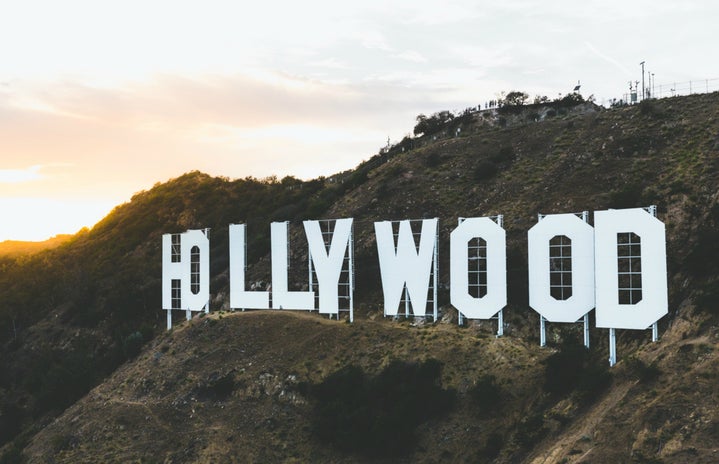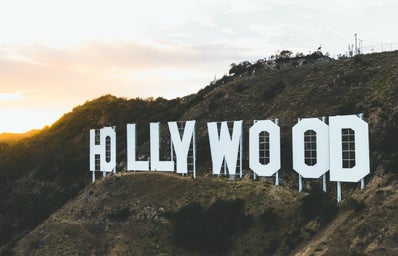Dear Hollywood,
I’m going to be brutally honest and not hold anything back, because I don’t know how to talk any other way. You have been warned and you may now proceed.
When I look back at little me surviving in elementary school with her dumplings, I remember having a few distinct thoughts. How was it that I could simultaneously be so in love with my culture yet feel like such an outsider in North America? Why was being Asian something that made me a target at school? The battle between achieving self-acceptance and self-love, while trying to fit into my community started at a very young age and was something that I would be struggling with for many years to come. And I know that I’m one of millions, if not billions of Asians who feel this way. That is why this topic has always held a dear place in my heart.
As much as society doesn’t want to admit it, what people see in the media sets the foundation for how they end up living their lives. Every time a movie director decides that a Caucasian person should be cast for an Asian lead role, it sends the message to everyone that Asians aren’t as valuable or that they are a second choice. It’s so disheartening to hear how often this happens. Producers originally wanted Lara Jean, a Korean role, in To All the Boys I’ve Loved Before to be a Caucasian girl, and if the author didn’t put her foot down, they would’ve gotten their way. And don’t even get me started on when they initially planned to cast a Caucasian lead for Mulan. Of all possible movies! Hua Mu Lan is literally a traditional Chinese tale!
Every time an Asian is either cast as nerdy or sexualized in a movie (if they’re even being cast at all), it starts perpetuating the stereotypes that you see so many children bully other Asian children about. The media portrays Asians in such specific ways, and because Hollywood isn’t giving us any other opportunities to showcase our stories and the wonderful parts of our culture that make us special, people don’t have any other basis to go off of. It’s a giant domino effect that starts with something as simple as which groups of people are actually given a chance.
This is why so many Asians have sobbed ugly tears of joy during films like Crazy Rich Asians and To All the Boys I’ve Loved Before. You never realize how much it matters to find people you identify with on screen until you actually see it happen. And you never fully understand what sort of potential you can have in this world until you see someone you identify with make it happen. In a world where this is practically non-existent for Asians, these pivotal moments feel so much bigger. It feels like being a part of a larger movement, one that is trying to bridge the gap between inequality and equality, and one that could create a bigger and more inclusive space for the generations to come.
Prior to Crazy Rich Asians, there had never been an all-Asian cast in a Hollywood movie besides Joy Luck Club which aired 25 years beforehand. But this movie helped start a movement and pave the way for other films with Asian castings. Seeing Rachel Chu struggle with acceptance in a lavish and completely different world in Singapore helped highlight some of the cultural differences that sometimes arise within Asian culture itself.
Asian culture is extremely rich (no not that kind of rich – not Nick Young-level rich). Many countries help contribute to it which means it is embedded with so many other cultures. That means that there are so many traditions and stories out there that are still waiting to be heard of by the world – Crazy Rich Asians barely shows the tip of the iceberg. And while Crazy Rich Asians may not have been representative of all of the many Asian cultures, it became a critical starting point for Hollywood to consider sharing our other stories as well. With that being said, the film’s success is slowly helping Hollywood realize that diversity could actually be a good thing! Who could’ve seen that coming?
At the same time, To All the Boys I’ve Loved Before and its sequel, P.S. I Still Love You, made a significant impact in this movement in their own way. Jenny Han, the Korean author of the book series, had her visions brought to life through these Netflix films. Words cannot describe how refreshing it was to just see an Asian lead in a normal high school rom-com setting without a large emphasis on her being Asian. Most times, you won’t ever see an Asian in a film unless there’s a justification for it. But that’s not reality. In reality, we co-exist with everyone else in normal school and work settings. And to see that brought to life through her creations was absolutely beautiful. Both films, while different from each other in terms of what it offered, helped spearhead the movement in their own ways.
I’m not here to intentionally attack anyone or try to argue why Asians are superior to everyone else. If anything, I’m here to try and argue the exact opposite. All we want to do is feel belonging and equality in our communities and make this change happen now so that future generations are given that opportunity without having to fight for it every single time. This is a letter out of love, not out of aggression.
My hope is that one day, we can break down these barriers, share our stories and cultures with one another and most importantly, realize that we’re not as different from each other as society tries to make it seem. We all fall in love, mourn, and laugh in the same language, regardless of ethnicity. All it takes is a chance. Just know that for every Asian you cast in a movie, there will be at least a thousand little Asian girls and boys out there that will see someone they can identify with and think to themselves “I can do that too.”


